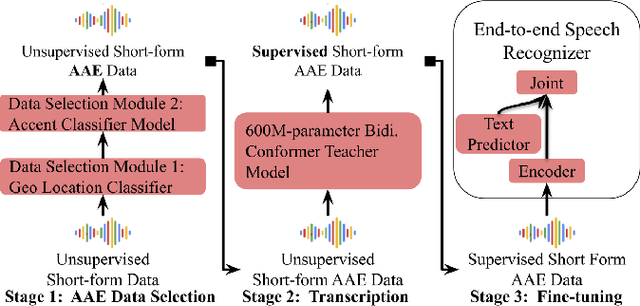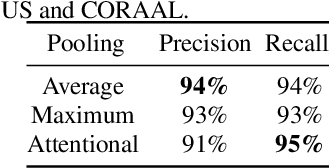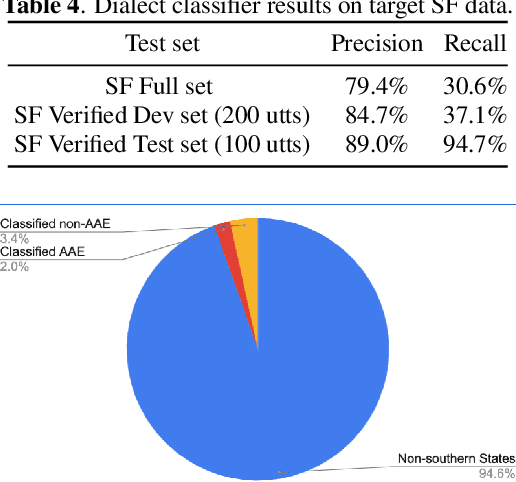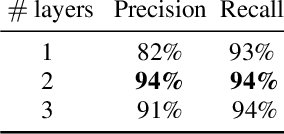Suzan Schwartz
Improving Speech Recognition for African American English With Audio Classification
Sep 16, 2023



Abstract:Automatic speech recognition (ASR) systems have been shown to have large quality disparities between the language varieties they are intended or expected to recognize. One way to mitigate this is to train or fine-tune models with more representative datasets. But this approach can be hindered by limited in-domain data for training and evaluation. We propose a new way to improve the robustness of a US English short-form speech recognizer using a small amount of out-of-domain (long-form) African American English (AAE) data. We use CORAAL, YouTube and Mozilla Common Voice to train an audio classifier to approximately output whether an utterance is AAE or some other variety including Mainstream American English (MAE). By combining the classifier output with coarse geographic information, we can select a subset of utterances from a large corpus of untranscribed short-form queries for semi-supervised learning at scale. Fine-tuning on this data results in a 38.5% relative word error rate disparity reduction between AAE and MAE without reducing MAE quality.
Accented Speech Recognition: Benchmarking, Pre-training, and Diverse Data
May 16, 2022


Abstract:Building inclusive speech recognition systems is a crucial step towards developing technologies that speakers of all language varieties can use. Therefore, ASR systems must work for everybody independently of the way they speak. To accomplish this goal, there should be available data sets representing language varieties, and also an understanding of model configuration that is the most helpful in achieving robust understanding of all types of speech. However, there are not enough data sets for accented speech, and for the ones that are already available, more training approaches need to be explored to improve the quality of accented speech recognition. In this paper, we discuss recent progress towards developing more inclusive ASR systems, namely, the importance of building new data sets representing linguistic diversity, and exploring novel training approaches to improve performance for all users. We address recent directions within benchmarking ASR systems for accented speech, measure the effects of wav2vec 2.0 pre-training on accented speech recognition, and highlight corpora relevant for diverse ASR evaluations.
 Add to Chrome
Add to Chrome Add to Firefox
Add to Firefox Add to Edge
Add to Edge